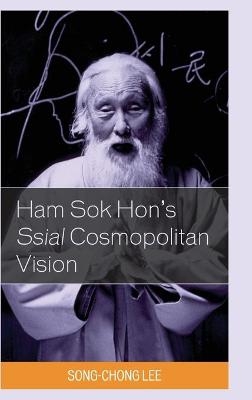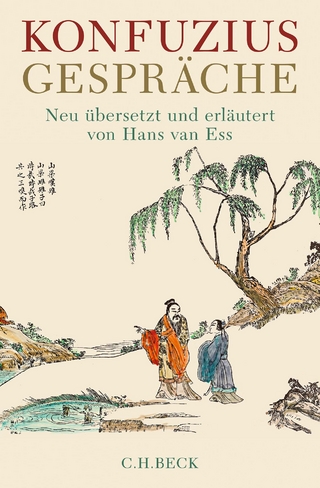
Ham Sok Hon's Ssial Cosmopolitan Vision
Seiten
2020
Lexington Books (Verlag)
978-1-4985-6405-2 (ISBN)
Lexington Books (Verlag)
978-1-4985-6405-2 (ISBN)
This book offers an introduction to the philosophy of Ham Sok Hon, an iconic figure in the intellectual and political history of modern Korea, and discusses the potential contribution of his ssial philosophy to cosmopolitanism.
Song-Chong Lee’s Ham Sok Hon's Ssial Philosophy for a Cosmopolitan Vision offers an introduction to the philosophy of Ham Sok Hon (함석헌), an iconic figure in the intellectual and political history of modern Korea, and a discussion of the contributions of his ssial (씨알/seeds, people) philosophy to cosmopolitanism. Known as Gandhi of Han’guk, Ham (1901–1989) was at the epicenter of a series of tumultuous political events in Korea and played a pioneering role in progressive social activism, including the independence movement, promotion of nationalist education, protests against military regimes, and pietistic, religious liberalism. According to Lee, Ham developed his own syncretic, authentic philosophy of ssial and applied it to his understanding and assessment of theology, history, politics, and even international relations. His syncretism culminated at his anthropology of ssial and his expanded notion of community. Lee argues that Ham’s ssial philosophy, which reconstructed the citizen’s identity as an active agent for political progress, led him to defy the excessively parochial nationalism, romanticized patriotism, and indoctrinated religiosity with which he believed the whole society was infatuated during the mid-twentieth century--and ultimately to advocate for a cosmopolitan community.
Song-Chong Lee’s Ham Sok Hon's Ssial Philosophy for a Cosmopolitan Vision offers an introduction to the philosophy of Ham Sok Hon (함석헌), an iconic figure in the intellectual and political history of modern Korea, and a discussion of the contributions of his ssial (씨알/seeds, people) philosophy to cosmopolitanism. Known as Gandhi of Han’guk, Ham (1901–1989) was at the epicenter of a series of tumultuous political events in Korea and played a pioneering role in progressive social activism, including the independence movement, promotion of nationalist education, protests against military regimes, and pietistic, religious liberalism. According to Lee, Ham developed his own syncretic, authentic philosophy of ssial and applied it to his understanding and assessment of theology, history, politics, and even international relations. His syncretism culminated at his anthropology of ssial and his expanded notion of community. Lee argues that Ham’s ssial philosophy, which reconstructed the citizen’s identity as an active agent for political progress, led him to defy the excessively parochial nationalism, romanticized patriotism, and indoctrinated religiosity with which he believed the whole society was infatuated during the mid-twentieth century--and ultimately to advocate for a cosmopolitan community.
Song-Chong Lee is associate professor and the chair of the Religious Studies and Philosophy Department at the University of Findlay.
ContentsAcknowledgmentsSelected Works of Ham Sok HonIntroduction1. Ham Sok Hon
2. Background of Ham’s Philosophy and His Style of Writing
3. Note on the Focus of Discussion and Selections of Ham’s Writings
4. State of Nature
5. In'gan, Ssial, and Saengmyeong (인간 human, 씨알 ssial, 생명 life)
6. Ssial Philosophy for Cosmopolitanism
7. Ham Sok Hon’s Ssial Philosophy as Derridean Singularity
Conclusion
| Erscheinungsdatum | 10.05.2021 |
|---|---|
| Verlagsort | Lanham, MD |
| Sprache | englisch |
| Maße | 160 x 229 mm |
| Gewicht | 467 g |
| Themenwelt | Geisteswissenschaften ► Philosophie ► Östliche Philosophie |
| Geisteswissenschaften ► Religion / Theologie | |
| Sozialwissenschaften ► Politik / Verwaltung | |
| ISBN-10 | 1-4985-6405-4 / 1498564054 |
| ISBN-13 | 978-1-4985-6405-2 / 9781498564052 |
| Zustand | Neuware |
| Haben Sie eine Frage zum Produkt? |
Mehr entdecken
aus dem Bereich
aus dem Bereich


